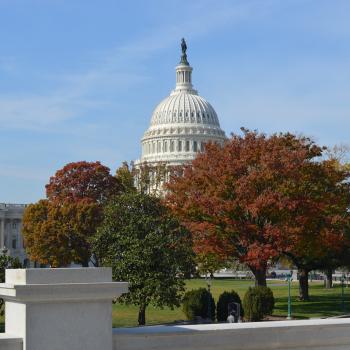So what’s going on with Julian Assange, the snowy-haired boss of WikiLeaks?
Something is brewing. Everybody is talking, so I’m going to take a stab at it, myself.
Let’s first make sure everyone is on the same page about who (and what) Julian Assange is. He’s more than simply some tech guru or hacker mastermind.
If you’re the Swedish Prosecution Authority, he’s a rapist on the run. In 2010, several women went to authorities with claims of sexual assault and warrants were issued. He was arrested in London, but makes bail.
In 2012, the UK determines he should be extradited to Sweden to face questioning over the allegations.
Assange flees to the Ecuadorean embassy in London, and is granted asylum, under the assumption that should he be extradited, his human rights may be violated.
As of 2015, some of the various charges against him have been dropped, due to the statute of limitations on those crimes in Sweden running out. The more serious charge of rape was dropped in 2017, with Sweden assuming he would eventually be extradited to the United States, to face questioning for his presumed role in the hacking of DNC emails by Russia.
Assange, who doesn’t just lead WikiLeaks, but has been rumored to be the sole force behind the secrets sharing site, is considered by many to be working directly for the Russian government. WikiLeaks is responsible for spreading the hacked DNC emails across social media just before the 2016 elections.
So if you’re an American interested in knowing the truth, he’s not only a rapist, but he’s an enemy agent, working directly against our nation’s system of government.
What’s interesting about Assange and WikiLeaks, to those of us who burned our partisan cards in 2016, is that there was a time when Assange’s obvious attempts to interfere in the business of the United States was seen as criminal by members of the political right.
When WikiLeaks revealed troop movements in the Middle East in 2010, Sean Hannity raged for weeks, calling Assange a criminal [rightly], and calling for his arrest.
Since WikiLeaks targeted the DNC, shaking up the base, creating distrust and anger, and perhaps losing crucial votes for Clinton (as so many fled to the Green Party’s Jill Stein, in protest), Hannity’s words for Assange now drip with honey.
That’s a prime example of having zero principles.
Not surprisingly, it was discovered, quite by accident and casual trickery, that Hannity and Assange share backchannel communications, where they plot against Trump-critical Democrats in the government.
I guess that breathless outrage Hannity once expressed is all water under the bridge now.
So fast forward to today, and some really bizarre situation, where the Justice Department may have inadvertently revealed that charges are sitting and ready for Assange.
Because of two lines that popped up in the paperwork of a completely unrelated case, the world now sees that the DOJ has not forgotten about Assange, so of course, some people are sweating.
From the Associated Press:
Assange’s name appears twice in an August court filing from a federal prosecutor in Virginia, who was attempting to keep sealed a separate case involving a man accused of coercing a minor for sex.
In one sentence, the prosecutor wrote that the charges and arrest warrant “would need to remain sealed until Assange is arrested in connection with the charges in the criminal complaint and can therefore no longer evade or avoid arrest and extradition in this matter.” In another sentence, the prosecutor said that “due to the sophistication of the defendant and the publicity surrounding the case, no other procedure is likely to keep confidential the fact that Assange has been charged.”
Fitting that those lines should turn up in a case against another sexual predator.
So how did those lines come up?
I can only imagine it was a combination of human error and a computer glitch. Somebody more knowledgeable about those things will have to chime in. The day is a win for me when I can figure out how to turn my computer on.
It was not immediately clear why Assange’s name was included in the document, though Joshua Stueve, a spokesman for the Eastern District of Virginia — which had been investigating Assange — said, “The court filing was made in error. That was not the intended name for this filing.”
Yeah. We got that part.
The Washington Post reported late Thursday, citing people familiar with the matter, that Assange had indeed been charged. The Associated Press could not immediately confirm that.
So here’s another interesting tidbit, and for those who have been keeping up with the Russia probe and all the surrounding players, it should really put you on high alert: Former Attorney General Jeff Sessions had said at one point that arresting Assange and bringing him to justice was a priority of the Justice Department.
Now, with Sessions gone and a Trump loyalist who wants to see the probe shut down installed as the acting attorney general, is getting to Assange still a priority?
Barry Pollack, a lawyer for Assange, told the AP earlier this week that he had no information about possible charges against Assange.
In a new statement, he said, “The news that criminal charges have apparently been filed against Mr. Assange is even more troubling than the haphazard manner in which that information has been revealed. The government bringing criminal charges against someone for publishing truthful information is a dangerous path for a democracy to take.”
We’re a republic.
Also, to be clear, it wasn’t just a case of “publishing truthful information” and the interest our government has in getting to Assange didn’t begin with the hack of John Podesta’s emails. The case against him has been building since 2010.
Assange has made the United States a target. He was willing to endanger our troops. He worked with Russia (Yes, HE DID) to disrupt the 2016 elections. He’s a criminal.
Now the problem is getting him out of that Ecuadorean hidey-hole and out into the open.
Reports are that he’s an awful houseguest and has failed in some of the most basic requests of his hosts (such as cleaning up after his cat – seriously). Because of that, he’s had his internet privileges taken away, like a child.
So what happens next? Will there be an active move to get Assange to the United States?
Let’s hope so.










